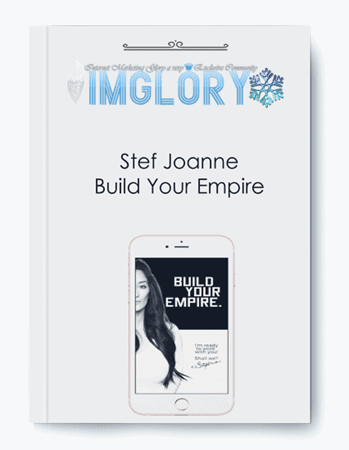Michael Oliver – How to ‘Sell’ The Way People Buy!
$297.00 Original price was: $297.00.$9.99Current price is: $9.99.
Features of Michael Oliver – How to ‘Sell’ The Way People Buy! What You Get: The “Michael Oliver – How to ‘Sell’ The Way People Buy!” course offers a comprehensive and structured approach to improving sales performance through natural conversational dialogue.
This and 4000+ Courses and wso can be downloaded as a premium member for only $39.
Join VIP Now !- Product Name How to ‘Sell’ The Way People Buy!
- Author : Michael Oliver
- Language : English
- Type : Internet Marketing, Ecom Marketing
- Price :
$297.00 - Size : 156 MB
- Homepage : Salespage
Features of Michael Oliver – How to ‘Sell’ The Way People Buy!
What You Get:
- The “Michael Oliver – How to ‘Sell’ The Way People Buy!” course offers a comprehensive and structured approach to improving sales performance through natural conversational dialogue. Here’s a review of the course content:
- The course begins with a warm and welcoming introduction, setting the stage for what’s to come. It emphasizes the importance of understanding that nobody likes to feel “sold,” which is a critical mindset shift for anyone in sales.
- One of the standout features of this course is the “7 Success Tips,” which provide valuable insights into effective selling strategies. These tips likely serve as a foundation for the course’s content, helping participants grasp key concepts.
- In Lesson 1, the course dives into “9 Essential Basic Sales Skills,” offering a solid foundation for successful selling. It starts with defining the primary objectives of selling and moves on to identifying problems and understanding customer desires and commitment to change. Skill #2, focusing on different ways to initiate a conversational dialogue, is particularly valuable in making the sales process feel natural.
- Lesson 2 introduces the “Natural Selling Conversational Dialogue Framework,” emphasizing the importance of addressing potential concerns and highlighting that effective selling is ultimately about the customer. This customer-centric approach is essential for building trust and rapport.
- The Connecting Stage (Lesson 3) focuses on pre-planning and various techniques to initiate conversations without causing tension. The importance of creating a personal value impact statement is highlighted, as it helps sales professionals establish their unique value proposition effectively.
- Lesson 4, “The Discovering Stage,” acknowledges that the sales process isn’t always linear and emphasizes consistency in the approach. The use of closed and open-ended questions is discussed, demonstrating how to gather valuable information from potential customers.
- Continuing into Lesson 5, the course expands on the “Discovering Stage” with specific types of questions: Background Questions (BQ), Needs Awareness Questions (NAQ), and Needs Development Questions (NDQ). These questions serve as powerful tools for understanding customer needs and aligning solutions with their values.
- Overall, the “Michael Oliver – How to ‘Sell’ The Way People Buy!” course appears to provide a structured and thoughtful approach to sales, emphasizing natural conversation and customer-centricity. The inclusion of practical skills, tips, and frameworks make it a valuable resource for anyone looking to improve their sales techniques and increase their success without creating friction, tension, or resistance in the sales process.
FAQs
- Who is this course suitable for?
- This course is suitable for sales professionals, entrepreneurs, and anyone involved in sales who wants to enhance their sales skills. It’s designed to help individuals improve their sales techniques using natural conversational dialogue.
- Do I need prior sales experience to benefit from this course?
- No, prior sales experience is not required. The course is structured to cater to individuals at various skill levels, from beginners to experienced salespeople. It provides a comprehensive foundation for effective selling.
- Is this course available online, and how long does it take to complete?
- Yes, this is an online course that you can access at your convenience. The duration of the course may vary depending on your pace, but it typically takes several hours to complete all the modules.
- Will this course help me increase my sales immediately?
- While results may vary depending on individual application and effort, the course provides valuable insights and practical techniques that, when applied, can lead to improved sales performance. It’s designed to help you sell more effectively over time.
- Is there any ongoing support or resources after completing the course?
- Yes, some courses offer ongoing support or access to resources such as forums, webinars, or additional materials. It’s recommended to check the specific course details for any post-course support that may be included.


Download Links
SIGNUP AND SEE ALL DOWNLOAD LINKS
100% SATISFACTION GUARANTEED
ALL DIRECT DOWNLOAD LINKS - NO WAITING TIME - NO CAPTCHAS - NO ADSRelated products
Bussiness Marketing
IMGlory VIP









